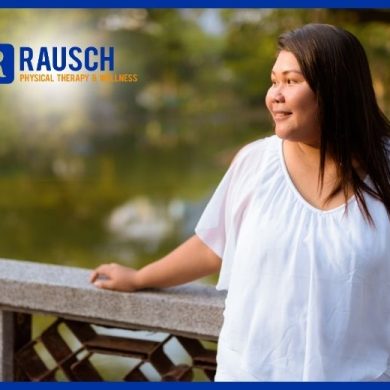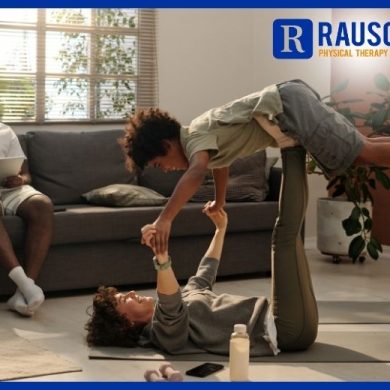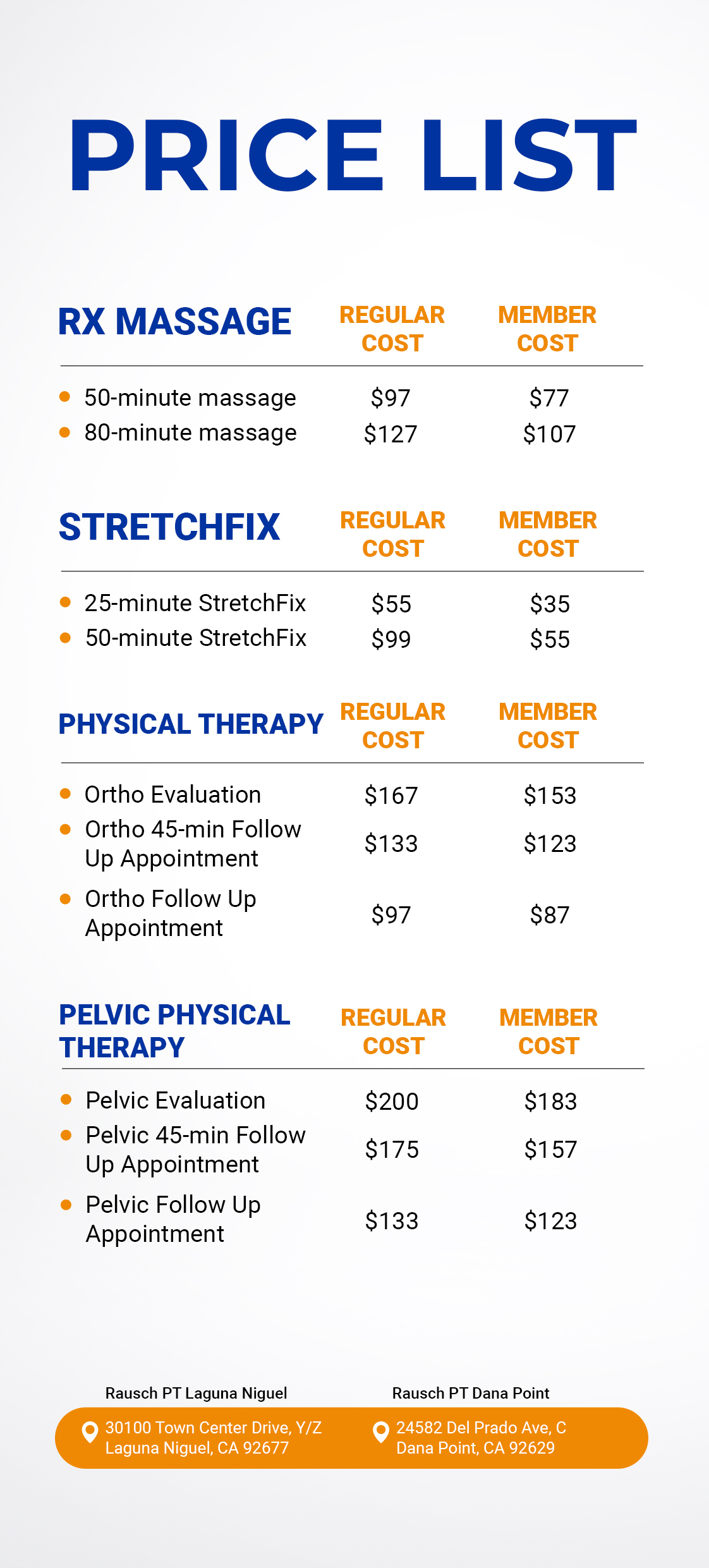1. Bring Mindfulness Into Your Day Stress and anxiety don’t just affect your mind—they impact your nervous system, sleep, recovery, and even how your body experiences pain. Mindfulness and meditation,
5 Lifestyle Tweaks That Will Dramatically Improve One’s Well being: “Only exercise for fun” with Emma Green and Dr. William Seeds
December 23, 2019 10:58 am / Category: Dana Point , Uncategorized

Only exercise for fun: Rather than being obsessed with what is optimal, focus on what is fun for you. Think about the activities that you used to enjoy when you were younger and see if you can find ways to incorporate them now. Perhaps grab a friend if working out on your own seems boring or intimidating, it can be a great way to connect.
As a part of my series about “5 Lifestyle Tweaks That Will Dramatically Improve One’s Wellbeing”, I had the pleasure of interviewing Emma Green. Emma helps people build a healthy relationship with food, exercise, and their bodies. She achieves this by working as a freelance writer and online coach. Emma is passionate about taking an evidence-based yet fun approach to health and fitness.
Thank you so much for doing this with us! Our readers would love to “get to know you” a bit better. Can you share with us the story about how you first got involved in fitness and wellness?
I developed an eating disorder at the age of 14, which was triggered by being bullied at school. My mental and physical health rapidly deteriorated. I was barely eating and exercising obsessively on a daily basis. I was tired and miserable but felt unable to stop. I didn’t really understand what was happening to me at the time and subsequently continued to struggle, albeit less severely, until the age of 18 when I went to university. The stress of my studies combined with social pressures resulted in my eating disorder rapidly worsening and finally receiving a diagnosis at the age of 20.
Following graduating from university, I began the journey of recovery. It took six years and four different therapists but I made a full recovery. The process gave me a greater understanding of the way in which an obsession with food and exercise can become all-consuming and what it takes away from you. I spend years of my life just existing, rather than truly living. I became increasingly aware of the detrimental effect of the diet culture in which we live where people punish themselves with endless diets and grueling exercise routines in an attempt to achieve the ‘perfect body.’ I saw that people were postponing their happiness in the hopes that one day, their dieting and exercise would allow them to reach some kind of utopia that just doesn’t exist. I wanted to share the message that people can seek health and fitness without being restrictive. That a ‘perfect body’ is not only unattainable but not the answer to happiness. I wanted to show people that there was another option.
Can you share the most interesting story that happened to you since you started your career?
Whilst studying for my Ph.D., I began online fitness coaching. I started being approached by friends that knew me in ‘real-life’ but had been positively affected by the messages I was sharing on my Instagram page. I realized that the message I was sharing was powerful and had the ability to affect others in a positive way. I began to take things more seriously, thinking more carefully about what I was sharing and ensuring that there was no potential to cause harm, with either the images or the words I was using. I take this responsibility incredibly seriously to this day and never post anything that I think could negatively impact another person. I am sure that I am not perfect with this but I try my absolute best.
Can you share a story with us about the most humorous mistake you made when you were first starting? What lesson or takeaway did you learn from that?
When I first started posting on Instagram, I had no idea what I was doing. I would post pictures with no caption and no hashtags. At the time it was just pictures of food, which were not particularly engaging so it’s no surprise that I got little to no engagement! I learned that Instagram is about so much more than pictures. I realized that people do read captions and that as a lifelong writer, I could use words in a meaningful way to positively impact others. My captions became gradually longer and now I regularly reach the maximum character allowance. Fortunately, my editing has also improved and I am much better at removing the fluff from a caption to ensure that only the important stuff remains.
Can you share with our readers a bit about why you are an authority in the fitness and wellness field? In your opinion, what is your unique contribution to the world of wellness?
In terms of being an authority, I have a Ph.D. in Health Psychology which has provided me with the ability to think critically about topics, assess the scientific evidence and form a coherent argument. I am also a certified Personal Trainer, which gives me more credibility in terms of the content I produce but also in my ability to work with individuals on a one-to-one basis.
In terms of my unique contribution, I try to show people that the pursuit of health and fitness goals (which is by no means is a moral imperative) doesn’t have to mean restriction. It doesn’t have to involve miserable and exhausting workouts. It doesn’t mean having to eat ‘clean’. It doesn’t mean trying to make your body fit some kind of ideal that society has told you are beautiful. I talk a lot about the principles of intuitive eating, which involves tuning into your own bodily cues to decide how what and when to eat. It involves exercising in a way that is fun, rather than as a way to burn calories.
I’m aligned with a Health at Every Size (HAES) approach, which supports all individuals to pursue health but adopting health-promoting behaviors, whilst acknowledging the societal and structural barriers that impede health. It’s a radical standpoint, particularly within the health and wellness industry, but I’m hugely passionate about sharing the message and having engaging discussions with others in this space
None of us are able to achieve success without some help along the way. Is there a particular person who you are grateful to who helped get you to where you are? Can you share a story about that?
That would have to be my boyfriend Stef. He is hugely supportive of my social media efforts and encourages me to ‘put myself out there’, which as an introvert is always something I have struggled with. After a talk I gave at a health summit earlier this year, he said to me ‘You are meant to do this.’ Stef sees my passion and desire to help others with my message. I often doubt myself and having his belief in me means a lot.
Ok, thank you for all that. Now let’s move to the main focus of our interview. We all know that it’s important to eat more vegetables, eat less sugar, exercise more, and get better sleep, etc. But while we know it intellectually, it’s often difficult to put it into practice and make it a part of our daily habits. In your opinion what are the 3 main blockages that prevent us from taking the information that we all know, and integrating it into our lives?
I actually think that there is a misunderstanding about what we ‘should do’. I don’t think that nutrition has to be restrictive and I don’t think that exercise has to be prescriptive.
I think one of the main reasons that people struggle with integrating certain behaviors into their daily lives is because they are inherently unsustainable. The good news is that pursuing physical and mental health does not have to be miserable, onerous or exhausting. People have to do a lot less than they think in the pursuit of physical health and wellbeing.
I think that it is also important to acknowledge the huge amount of privilege inherent in making decisions about health. People who are worrying about how to get by day-to-day cannot possibly have the time or energy to engage in health-promoting behaviors. Those people should be shamed or chastised but instead offered compassion whilst we campaign for social justice to address the root issues.
Finally, I think that some people struggle to justify the time to take care of their own health and wellbeing, regardless of their sociodemographic characteristics. If people are busy and have a lot of responsibilities, it can be hard for them to feel okay about leaving those aside and spending more time exercising or sleeping. Those activities can appear selfish. People may not necessarily have others around them that can challenge that idea.
Can you please share your “5 Non-Intuitive Lifestyle Tweaks That Will Dramatically Improve One’s Wellbeing”? (Please share a story or an example for each, and feel free to share ideas for mental, emotional and physical health.)
1) Stop dieting: Restricting food does not lead to improved health or wellbeing. It is inherently unsustainable, demonstrated by the 80% or more of people who regain weight loss after dieting. Instead, embrace a non-diet approach, tuning into your own body’s cues to determine what, when and how much to eat. This not only allows you to get in touch with what your body needs but also frees up a huge amount of time and energy that you can dedicate to other areas of your life.
2) Throw away the scale: The scale does not tell you anything that is useful. It is not a marker of health status. It is merely an unnecessary source of anxiety and stress, which makes you think that you are failing unless the number is going down. Get rid of it and see how liberated you feel.
3) Only exercise for fun: Rather than being obsessed with what is optimal, focus on what is fun for you. Think about the activities that you used to enjoy when you were younger and see if you can find ways to incorporate them now. Perhaps grab a friend if working out on your own seems boring or intimidating, it can be a great way to connect.
4) Learn to say no: As a recovering people-pleaser, I understand how hard it is to say no when you are asked to do something. It is so important to guard your own time, energy and wellbeing. If something is not worth doing, say no. If you don’t feel comfortable saying any right away, say ‘I’ll have to think about it’ and go back to that person at a later date. That gives you the time and space to decide what you are going to say to them and means that they will not be expecting an unequivocal yes.
5) Take time for being rather than doing: I like to be busy so I find it hard to take time to slow down and relax but it is hugely important for wellbeing. Make sure that you dedicate time for yourself, even if it is only a few minutes. Resist the temptation to fill this time with stuff. Instead, use the time to unwind and recharge so that you can feel refreshed and energized.
As an expert, this might be obvious to you, but I think it would be instructive to articulate this for the public. Aside from weight loss, what are 3 benefits of daily exercise? Can you explain?
My approach is weight-neutral so I don’t consider weight loss to be an inherent benefit of daily exercise. The scientific literature is very clear that physical activity is helpful regardless of whether or not a person loses weight. I would also note that I don’t think that exercise has to be a daily occurrence, there is nothing wrong with chilling on the sofa in front of a movie with a pizza. We all need downtime for both physical and mental health.
A key benefit of exercising more generally is getting more in touch with your body. You can learn about the cues it sends you, helping you better decide when you need to push yourself and when you need to pull back.
Exercise also helps boost your mood. Physical activity releases endorphins which in the short-term makes you feel happier. It can provide a welcome escape from existing worries and concerns.
Finally, exercise can improve confidence. It can be a springboard to feel more capable in daily life and increasing self-esteem.
For someone who is looking to add exercise to their daily routine, which 3 exercises would you recommend that are absolutely critical?
I actually don’t think that any exercises are critical. I think that enjoyment is the most important factor that should determine activity choices. However, from a physical health standpoint, I would argue that there are three aspects of fitness that ideally should be included within a routine: strength, cardio, and flexibility.
These can be achieved in a variety of ways. For example, strength might be gained using dumbbells, kettlebells, or bodyweight. Cardio might mean going for a run, dancing or swimming. Flexibility might mean a yoga class or even just some extended stretching done after workouts. A person certainly doesn’t have to start with all of these elements but it is something that they can work up to over time (as long as it remains fun).
In my experience, many people begin an exercise regimen but stop because they get too sore afterward. What ideas would you recommend to someone who plays sports or does heavy exercise to shorten the recovery time, and to prevent short term or long term injury?
For recovery, I think there are three key aspects: enough food (particularly carbs), sufficient rest days, and plenty of sleep.
Food cannot be underemphasized in terms of recovery. It is key that you eat enough not only to fuel your exercise but also to have enough left over for day-to-day functioning. There is increasing discussion of this in the industry and greater awareness about a condition called RED-S, which stands for Relative Energy Deficiency in Sports. Overall energy intake must be sufficient and making sure that you eat enough carbs is particularly important as they provide the primary fuel for the body during exercise.
Rest days are not optional! You need at least a day off per week, ideally two or three, to ensure that you can recover and don’t get burned out physically or mentally. This doesn’t have to mean sitting in front of the TV all day (although if that sounds good, go for it!) but it does mean time off from structured exercise sessions. Some gentle stretching or walking is fine. Your muscles repair and grow when you are resting so it is hugely important.
Sleep seems boring but it is vital to ensure proper recovery. Each person’s needs are different but the majority need between seven and nine hours per night. Establishing a nighttime routine can be helpful in ensuring you drift off easily, along with avoiding caffeine and bright light in the few hours beforehand. Equally, consider when you are scheduling your exercise sessions. You never want to be skimping on sleep in order to fit in your workout.
Is there a particular book that made a significant impact on you? Can you share a story?
Yes, a book entitled Intuitive Eating by two dieticians called Evelyn Tribole and Elyse Resch. They coined the term intuitive eating and laid out ten principles that help people to build a healthy relationship with food, exercise and their bodies. The first edition was published in 1995 but the ideas have gained greater traction recently, which is really exciting to see.
I have now read the book a total of three times and have gained something new each time. The first time it really opened my eyes to a different way of relating to food and exercise, one that didn’t involve tracking or counting anything, and the idea of allowing your body to just be was really novel. Although I didn’t immediately implement the principles into my daily life or my work with clients, it planted a seed and I dived into more books, podcasts and the scientific literature about the HAES approach. I am hugely grateful for having come across the book because it informed my work with clients today as well as my own day-to-day life.
You are a person of enormous influence. If you could start a movement that would bring the most amount of good to the most amount of people, what would that be? You never know what your idea can trigger. 🙂
I wish I could encourage people to be their authentic selves unapologetically. I know it sounds really corny but so many people, often unconsciously, are pursuing the version of themselves that they think they are meant to be, rather than who they truly are. We all are unique and I would really like to see that embraced and celebrated, both as individuals and within society as a whole.
Can you please give us your favorite “Life Lesson Quote”? Do you have a story about how that was relevant in your life?
“Extraordinary claims require extraordinary evidence.” It’s a quote by astronomer Carl Sagan. When I first heard it, it was a stark reminder of the importance of being critical of the messages we are fed in both mainstream and social media. It emphasizes the importance of weighing up the evidence of a claim, rather than taking it at face value. For me, this means reading the scientific studies myself as opposed to going by someone else’s opinion of it. It means thinking carefully about my experiences and questioning what evidence they have provided. It also means being mindful about the statements that I make myself and the evidence (or lack thereof) that I have to support them.
We are very blessed that some of the biggest names in Business, VC funding, Sports, and Entertainment read this column. Is there a person in the world, or in the US whom you would love to have a private breakfast or lunch with, and why? He or she might just see this if we tag them 🙂
Deborah Frances-White. I discovered The Guilty Feminist podcast earlier this year and am now obsessed. I think that it is so important to think critically about the effects of the patriarchy on both individuals and society as a whole and consider how we can best enact change in a meaningful and effective way. I’d like to chat with Deborah about the actions that we can take in our daily lives to create the world that we want to see.
What is the best way our readers can follow you on social media?
You can find me @emmafitnessphd on Instagram. I love connecting with others and having conversations about this stuff!
Thank you for these fantastic insights. We wish you only continued success in your great work!
— –
About the author:
Dr. William Seeds is a board-certified orthopedic surgeon and physician specializing in all aspects of sports medicine and total joint treatments. With over 22 years of experience, Dr. Seeds is focused on providing the most innovative results to those seeking to maximize their performance, relieve injuries, and live a healthy lifestyle.
If you find yourself in discomfort or think you could benefit from a personalized exercise plan, talk to a
Physical Therapist.
Let’s talk! We are here to help. Give us a call for a complimentary assessment.
Did you know there’s no prescription needed from a doctor to see us?
(949) 443-0713






